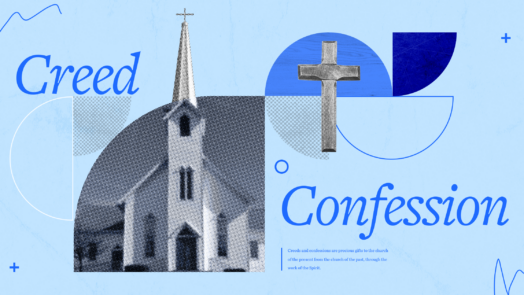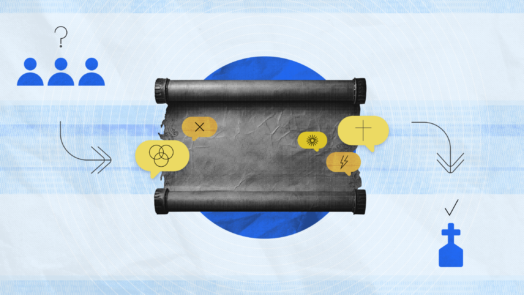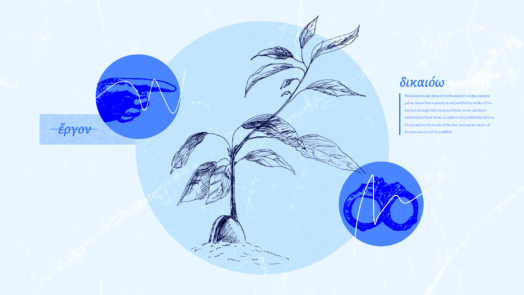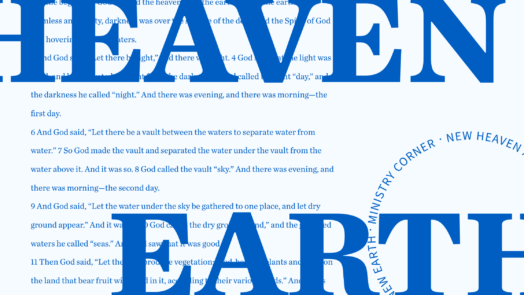People are afraid of demons. What are demons afraid of? Have you ever wondered? Maybe you would think it strange to imagine demons being afraid of anything. The accounts of demonic possession in the Gospels, and the attempts to represent such...
Every year new students walk into classrooms ready to build upon their first-year biblical language skills by learning how to exegete the Hebrew or Greek text. They are taught how to examine the nuances of words, the rules of grammar. They discover...
Creeds and confessions are precious gifts to the church of the present from the church of the past, through the work of the Spirit. They summarize the beliefs Christians have studied, worked, debated—and even died—to state clearly from Scripture...
Formal education is ripe for innovation. Non-traditional students—parents, professionals, retirees—have new options that are achievable, affordable, and accredited for advancing their Bible study abilities. Tradition and attempted innovation For...
From the window of graduate student housing at Emory University, my mother recalls watching an older man carrying a heavy sack and placing a book at the doorstep of each of the apartments, one after the other. And then this St. Nicholas-like man...
The risen Lord, Jesus of Nazareth, the Word-made-flesh, established for himself a great company of saints which is, as it were, the Word-confessed. The church is the company of saints who confess Christ while being sustained by the Word’s “continual...
Augustine’s Confessions is a great book. It has been read by the greats: great minds and great saints—from Petrarch in the sixteenth century to Sigmund Freud, Albert Camus, and Hannah Arendt in the twentieth. It cannot be ignored. We read...
Since the fall in the garden of Eden, death has held dominion over all living things, not least of all human beings. Though Scripture tells us of an occasional Enoch or Elijah, death claims all living entities eventually, no matter their age, title...
Jesus chose to make Nazareth the site of one of the most significant and enigmatic declarations of his early ministry. As the community was gathered in the synagogue for Sabbath, he said: The Spirit of the Lord is upon me. What did Jesus mean? Why...
Joan Osborne’s 1995 pop hit What If God Was One of Us? asked an excellent question. Another song, Hark! The Herald Angels Sing—a famous hymn of Charles Wesley and George Whitefield—gives the correct answer. The ancient world had many deities, even...
Over the course of history, theologians, commentators, preachers, and readers of the Bible have pondered what it means to be justified by faith in Christ, as Paul says in Galatians 2:16 (LEB). There are several knots that we have to untie when it...
The creeds confess it because the Bible teaches it: Jesus is coming to judge the living and the dead. What does the New Testament teach about the Parousia?
Genesis 3:8 is a familiar verse in a familiar story: Adam and Eve have sinned, and now, in the cool of the day, they hear the sound of the Lord God walking in the Garden. Afraid, they hide among the trees.
The Bible is explicit that God revealed ten Words to his people at Sinai and it stands to reason that we should know how to number them, especially given the unique status these Words bear in Scripture.
When he speaks of the kingdom of God, Jesus simultaneously captures our greatest dreams and summarizes the drama of salvation history. The idea of God’s own kingdom is evocative: the ideal society, utopia, paradise. A kingdom in which all citizens...
If we wish to understand the Tree of Life and the Tree of the Knowledge of Good and Evil, we must begin with seeing them as a part of the creational order. Trees, along with plants and seed-bearing things, come to life by the word of God as part of...
What does the Bible say about sexual immorality? How does God, through Scripture, comfort the sexually struggling, engage the skeptic, and provide a template for those exasperated by their attempts to live a holy sexual life? Common ethical systems...
You probably don’t use the word defiled in everyday conversation. But if the synonyms dirty or unclean come to mind, you’re on your way to understanding the key Old Testament theme of defilement. It’s just that in Scripture, defilement isn’t limited...
What, exactly, is the future Christian hope? What are we supposed to be looking forward to? We long for heaven, of course—and Scripture definitely exhorts us along these lines: Paul tells us to set our minds on things above (Col 3:2).
Navigating life at the crossroads of science, faith, and philosophy is challenging. Lydia Jaeger, a seasoned navigator in these realms, has gifted us with her work, Ordinary Splendor: Living in God’s Creation. I thoroughly enjoyed my recent...
Among the divine attributes, none is so mysterious and sublime as that of divine holiness. In systematic theology, the divine attributes—aspects of God’s character and being—are normally divided into two categories: the incommunicable and the...
The apostle Paul uses the seemingly paradoxical phrase “spiritual body” in 1 Corinthians 15 when explaining what will happen to believers’ bodies at the resurrection. In this same discourse, he also claims that there are many kinds of flesh...
As a kid growing up in Georgia, my school used to take field trips every year to the Savannah Science Museum. I loved it! We’d run through a two-story replica of the human heart, peer into terrariums of exotic snakes, and lift massive weights using...
If we are honest, theological education has a persistent PR problem. Some pastors may even discourage a potential seminarian from attending a school because of their own difficult journey. But there’s a reason seminary has long been a standard...
The Bible opens by describing a universe that is formless and void. The Creator breaks the silence by speaking a word of power into the nothingness. And then light is introduced, thus marking the first day of creation. Throughout the subsequent five...
Exegetical ambiguity occurs when a word or passage from Scripture can support more than one interpretation. Exegetical ambiguity can spur a deeper engagement with the text, but it can also frustrate or even cause despair. But it may relieve us to...
Christians debate creation and evolution as sharply as any other issue. All Christians believe that in or at the beginning, God created the heavens and the earth (Gen 1:1). Nicene Christians confess the Father as Maker of heaven and earth, and of...
Growing up, my family had a weekend farm just north of the town where we lived. As a kid, it was a great place to explore nature and learn many life skills. It was on that farm, for example, where I learned how to drive a manual transmission even...
Jesus says to Peter in Matthew 16:18, You are Peter, and on this rock I will build my church and the gates of Hades will not overcome it. Few passages have been as foundational and encouraging for the church as Matthew 16:18. For example, at the...
In the years since the 2016 election of President Donald Trump, evangelicals have become arguably the most controversial religious group in America. Almost all mainstream news coverage of evangelicals relates to politics—or to scandals, such as the...






























